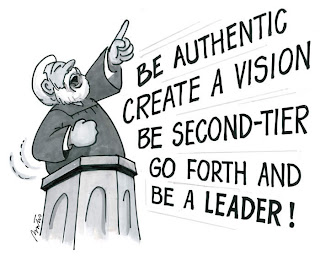Our institutions are out of date; the long career is dead; any quest for solid rules is pointless, since we will be constantly rethinking them; you can't rely on an established business model or a corporate ladder to point your way; silos between industries are breaking down; anything settled is vulnerable.
From 'This is Generation Flux: Meet the Pioneers of the New (and Chaotic) Frontier of Business' posted earlier this month in Fast Company.
I'm sure
we're all attracted to articles that reflect our personal views of the world. I found this one both interesting and inspiring.
Personally,
flux is what I thrive on. When I joined a consulting company at 27, what inspired me was working with multiple clients at the same time. Nothing was ever the same, or predictable. As my career moved along I happily left jobs - mostly voluntarily, but not always - and even fired clients. Same old, same old isn't exactly in my comfort zone.
For that reason
I've been attracted to and inspired by technology. For me - and our business - nothing has expanded networks, horizons, opportunities and thinking faster and more dramatically than the ability to learn from and tap into the constantly evolving (fluxing?) basket of web and social media tools.
To this day,
I still remember the thrill of signing up for Compuserve and clicking on that first web link. It was easy to recognize IMMEDIATELY that the world had changed.
A few years later
I got the same thrill listening to my good friend John R. - who I knew should be on plane selling to far flung clients - explaining how planes were outdated and how he could bring us great clients simply by optimizing our website. John wasn't wrong - and we landed Gulfstream Jets (ironically!), the Gap and others - without ever visiting them.
A key point
of the Fast Company article is that 'GenFlux' isn't a demographic - it's a mindset.
Not everyone will join Generation Flux, but to be successful, businesses and individuals will have to work at it.
From our vantage point
at Boardroom Metrics we couldn't agree more. We see the resistors. They're out there - both companies and individuals.
The arrogance
of the old school around everything from owning an iPhone, to marketing using social media, to hiring 'experience' drives us batty at times. It seldom seems to us there's much proof that the status quo is working. Yet the fear of and inability to 'break out' (even barely) and try a different approach is real - and (from our vantage point) incredibly stifling.
For those who 'get it', what we see is competitive advantage.
The keys to fluxing
seem simple. Open mind. Flexibility. Curiosity.
To flourish requires a new kind of openness. More than 150 years ago, Charles Darwin foreshadowed this era in his description of natural selection: "It is not the strongest of the species that survives; nor the most intelligent that survives. It is the one that is most adaptable to change."






